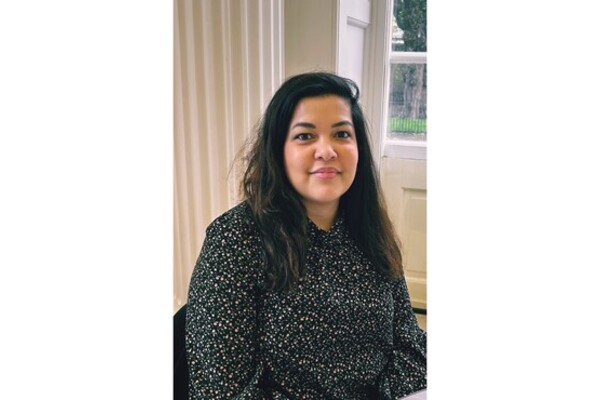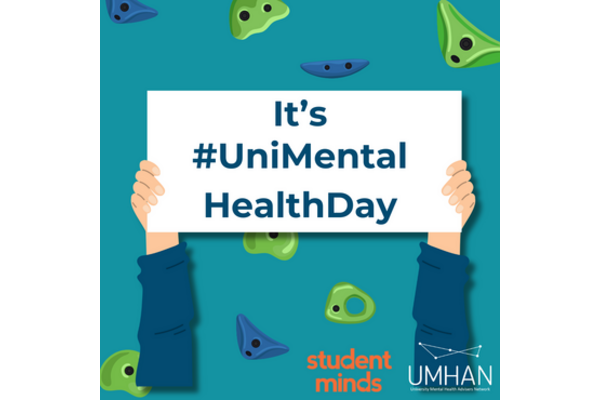Name
Imogen Varle, SFHEA
Job title
Mental Health Intervention Officer
Employer
De Montfort University (DMU)
How long have you worked in student mental health?
I’ve spent the past three years immersed in the world of higher education, but my
journey started much earlier in psychiatric nursing. Throughout my career, whether as a
Band 5 staff nurse or a senior Band 6, I played a pivotal role in mentoring students. In
my role as a Student Lead, I was the bridge between the universities and our wards,
ensuring that students not only had the right support but also felt well-prepared for their placements. I took it upon myself to create comprehensive “student induction” packs for each ward. These packs were designed to provide a clear structure for their experience and alleviate the anxiety that often accompanies placements in psychiatric settings. My goal has always been to create an environment where students can thrive and learn with confidence.
How long have you been in your current role?
I joined DMU in October 2021, so I’m celebrating my third anniversary with the university
this year.
Can you outline your career and how you got to where you are today?
My journey into mental health began at the age of 11, as I cared for my mother who
struggled with depression, anorexia, and several physical health issues like diabetes and
prothrombin mutations. This early experience ignited my passion for mental health,
leading me to realize that mental health nursing was my calling. I spent several years
working as a Band 5 nurse in various inpatient settings, including acute mental health
wards and psychiatric intensive care units. Later, I advanced to a senior role in child and
adolescent mental health services, focusing on trauma, anxiety, and low mood. In this
role, I developed pathways for clearer care goals and worked directly with patients, all
while nurturing my commitment to enhancing the student experience. I eagerly took on
the role of Student Lead on every ward, recognizing the critical importance of proper
support and guidance for student success.
In addition to my clinical work, I served as a clinical risk trainer for the trust, educating
doctors, nurses, and social workers on risk assessments. It wasn’t until I began
exploring opportunities beyond my senior role that I discovered the potential for a
university career. Initially interested in becoming a professor or lecturer, I was excited to
find a role that combined teaching, such as leading Masterclasses at DMU on mental
health and wellbeing, with one-on-one therapeutic work. The chance to build
professional relationships and help clients achieve their aspirations, despite challenges,
convinced me that this was the perfect fit for my skills and passions.
How does your experience and training help you to do your job well?
My background significantly enhances my effectiveness in my current role. Working in
inpatient settings honed my skills in risk assessment, as I frequently evaluated the risk
levels of both new and returning patients. This experience translates seamlessly into my
work assessing the student body, where accurate risk evaluation is equally crucial.
In nursing, regardless of your level or position, building trust and forming therapeutic
relationships with clients is essential. This principle is central to our role as Mental
Health Intervention Officers at DMU. During our Single Point of Access
Assessments—often the initial contact for students seeking mental health
support—creating a safe and trusting environment is critical. This allows students to
openly share their concerns and enables us to collaboratively develop effective
intervention plans.
Managing a caseload also requires balancing professionalism with empathy. It’s vital to
set appropriate boundaries while remaining approachable and understanding, especially
when working with individuals navigating significant life transitions and seeking mental
health support.
Additionally, having been a caregiver myself and having needed support while growing
up, I deeply empathize with students facing complex issues. My personal and
professional experiences have equipped me to appreciate the importance of a multi-
disciplinary approach in supporting students through their challenges and academic
journeys.
Can you briefly explain your day to day responsibilities?
An average day for me begins with an early arrival at work, giving me time to settle in
and enjoy a much-needed morning coffee. While sipping on my coffee, I catch up on
emails and review any updates from the previous day.
My day typically involves conducting assessments for students who are reaching out for
the first time—usually around 1 to 3 assessments daily. I also participate in mental
health meetings with staff and students, and work on intervention planning for my
caseload. Occasionally, I lead sessions called “Empowering Student Mental Health and
Wellbeing,” where I work with professors and academic teams to help them understand
how best to support our student body.
Depending on the needs of the day, I might collaborate with other university services or
external agencies like the NHS to coordinate care and interventions. Additionally, every
three weeks, I take on a “Duty” week, managing the wellbeing inbox and phone lines.
This role requires me to handle a diverse range of situations, from scheduling
assessments and addressing concerns from parents to engaging with professors and
other stakeholders.
What’s helped you to stay in your role?
Several factors help me stay in my role. First and foremost, the job offers an excellent
work-life balance, respecting boundaries and allowing me to pursue personal interests.
For example, I’m excited about the upcoming release of my second memoir, Through
Different Eyes, which explores the female presentation of autism and the diagnostic
process.
Additionally, my team is incredibly diverse, kind, and approachable. The collective
expertise and talents of my colleagues mean I never feel isolated in challenging
situations, and I’m confident that every student receives the support they need.
Moreover, having studied at the university I now work for, I deeply appreciate the
services we provide. I take great pride in assisting students who are on a similar journey
to the one I experienced, knowing that they are getting the support I wished I had back
then.
What part has UMHAN played in this?
Being part of UMHAN has been incredibly rewarding. It’s inspiring to be involved in a unit
so dedicated to supporting student satisfaction and mental health. The opportunity to join meetings and collaborate with colleagues from diverse backgrounds is invaluable. We exchange ideas and strategies to enhance the student experience, which is both
enriching and motivating.
Additionally, UMHAN provides an excellent range of Continuing Professional
Development (CPD) opportunities, which I find especially beneficial for nursing
revalidation. The resources and learning available through UMHAN have greatly
contributed to my professional growth and expertise.
What’s your favourite part of your role?
Definitely the autonomy and the ability to work one-on-one with your own caseload.
What has changed in student mental health since you started your role?
There have been quite a few changes in mental health. The debates around duty of care, highlighted by the tragic Natasha Abrahart case, have sparked significant discussion. Additionally, the cost of living crisis and the post-pandemic environment have added new pressures on students. These factors have intensified the challenges students face, which, in turn, can make our caseloads more complex.
What do you think are the biggest remaining challenges?
In my personal opinion, the biggest challenges we face today are similar to those from
my ward working days. Staffing, training, and illness are multifaceted issues that can
impact any team. While I feel fortunate in my role, I understand that other areas may have caseloads exceeding 40 students, which must be incredibly stressful given the level of organization required.
I also believe that the cost of living crisis is having a significant impact on many students,
and we are seeing its effects. Another potential challenge could be how universities
adapt to evolving trends, such as the shift towards hybrid working models and the use of
AI. For instance, with research indicating benefits from a four-day workweek, it will be
interesting to see how universities adjust to these changes.
Have you got any feedback from students that you could share with us?
I have received both written and verbal feedback indicating that the support I've provided at DMU is considered “invaluable” by those I assist. People have shared that I’ve “restored their faith in the mental health system” and that they felt “more comfortable and confident after our sessions than they had after any other attempts at getting help.”
This feedback underscores the critical nature of our role and the impact we have. It
highlights the importance of ensuring that students feel heard, valued, and validated in
their struggles. Our work can truly make a difference, potentially transforming a student's experience from one of difficulty and doubt to one of thriving and achieving their dreams.









